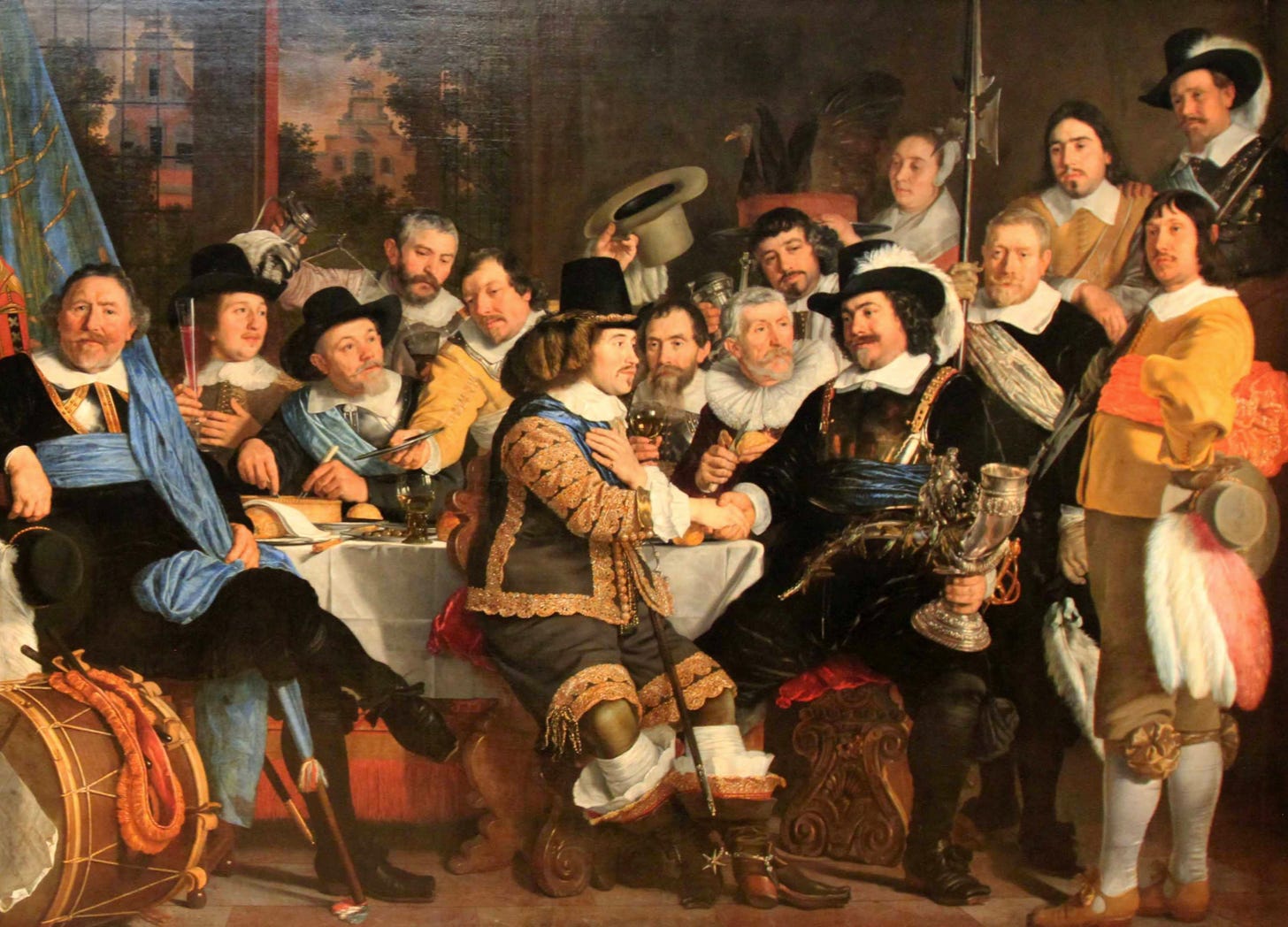There are more jobs in heaven and earth, Horatio, than are dreamt of in your philosophy.
(with apologies to) Hamlet, Act 1, Scene 5
Some people do the work for which they trained at a college or university. Others practice trades that they studied systematically, whether at a trade school or through a formal apprenticeship. Many people, however, earn their bread doing things that they learned how to do in other ways, whether by first-hand observation, systematic self-tuition, or the repurposing of pre-existing skills.
Folks who belong to this third category, none of whom are butchers, bakers, or candlestick-makers; let alone tinkers, tailors, soldiers, or spies; often find it hard to describe what they do. Thus, in the absence of well-established names for the things that they do during working hours, these Neitherlanders often resort to using terms, such as contractor, freelancer, advisor, or consultant, that provide little, if any, information about the products they produce, the services they provide, or the purposes that they serve.1
This phenomenon has been with us for a long time. Indeed, if I am not too badly mistaken, the multiplicity of hard-to-name vocations has been part and parcel of modernity from the very start of that era. In other words, the first Neitherlanders were (drum roll, please) Netherlanders, citizens of the Dutch Republic who, in the first half of the seventeenth century, worked in such novel lines-of-work as wind-mill repair, tulip-bulb arbitrage, and the grinding of lenses for spectacles and telescopes. (“Meester de Spinoza … Meester Baruch de Spinoza … please call your answering service.”)
In our own time, I find, among the barbers, bakers, and baristas of the nine square blocks of the wee town in which I live, a man who sells auto-insurance to foreigners, several hands-on landlords, a purveyor of edible crayons, healers of footsore folk, and the keepers of four outlets that, faute de mieux, I have come to call “ooh-rah shops.” (The latter sell items, whether useful or heraldic, of interest to US Marines and the people who love them.)
With the notable exception of the people who care for ankles, toes, and tarsals, all of the aforementioned people learned the skills they use on the job without benefit of formal training programs. Moreover, I think it is fair to say that, in the course of the journeys that took them to their presently occupied perches, these people followed circuitous routes, took several detours, and, if I am not too badly mistaken, ran up against a blind ally or two.
For more than a century, the people who run other-than-vocational schools for young adults have argued that four years on a college campus lays a solid foundation for the skills needed to thrive in various corners of the Neitherlands. In 1920, for example, the dean of the College of Liberal Arts of Ohio University mailed out many copies of a pamphlet which showcased the claim that a college like his was “a place to learn how to learn."2
The learning that occurs at such places, however, differs greatly from the learning that takes place in the realm of gainful employment. In particular, where knowledge acquired at school has been set down and systematized, formed and formalized well before it reaches the mind of the student, insights peculiar to particular places of work rarely experience such treatment. Rather, many of the most important things that people need to know in order to thrive in their hard-to-explain professions will appear, unwritten, unbidden, and without the benefit of a “this will be on the test,” at times of their own choosing.
The things that people learn at work, moreover, often defy the categories that loom so large on college campuses. Customers care little about disciplinary affiliation of the abilities that enable suppliers to meet their needs, and less about academic alliances of the people who possess them. Indeed, there are jobs in which success, safety, and, at times, survival depends on an understanding of truths that may not be whispered, let alone taught, on campus.
There is, of course, much to be gained from the tension between systematic knowledge and ad hoc understanding, written regulations and the rules that folks actually follow. Likewise, spending a few years in a world apart from one’s home planet will, ipso facto, broaden the mind. In the age in which we live, these benefits, so often associated with time spent at college, are as easily, and far more cheaply, acquired by doing a variety of jobs, especially if such work takes place in unfamiliar places.
When not the result of careless typesetting, the word Neitherlands usually refers to a place in the fictional universe assembled by Lev Grossman for his trilogy, The Magicians.
Charles G. Trumbull, quoted in Edwin Watts Chubb To High School Seniors: A Personal Letter (Athens, Ohio: Ohio University, circa 1920) page 11





Incidentally, where are those "ooh-rah" shops located? I need to replace some worn items.
“There are three kinds of men. The ones that learn by readin’. The few who learn by observation.
The rest of them have to pee on the electric fence for themselves.” With apologies to Will Rogers